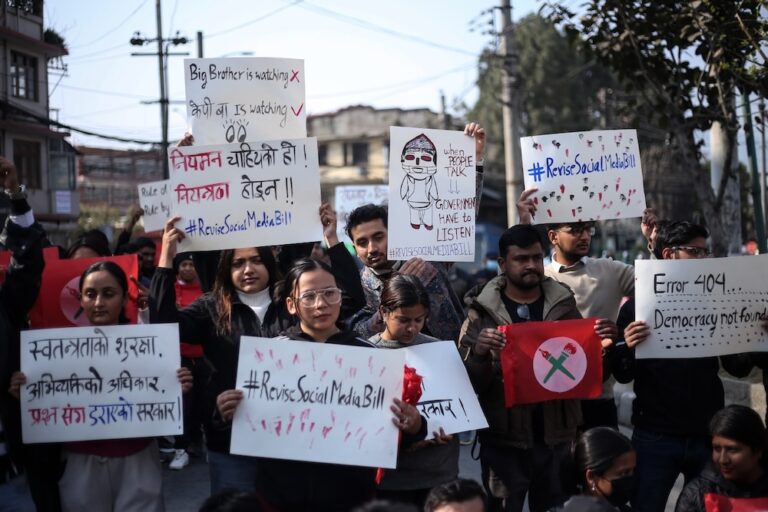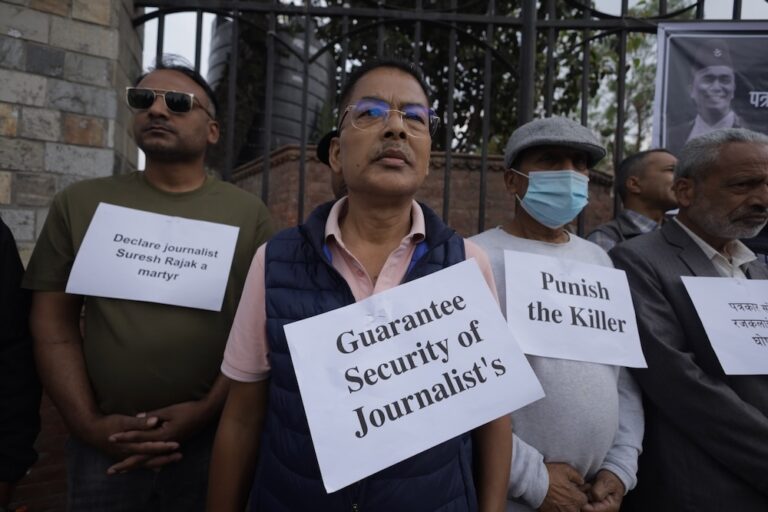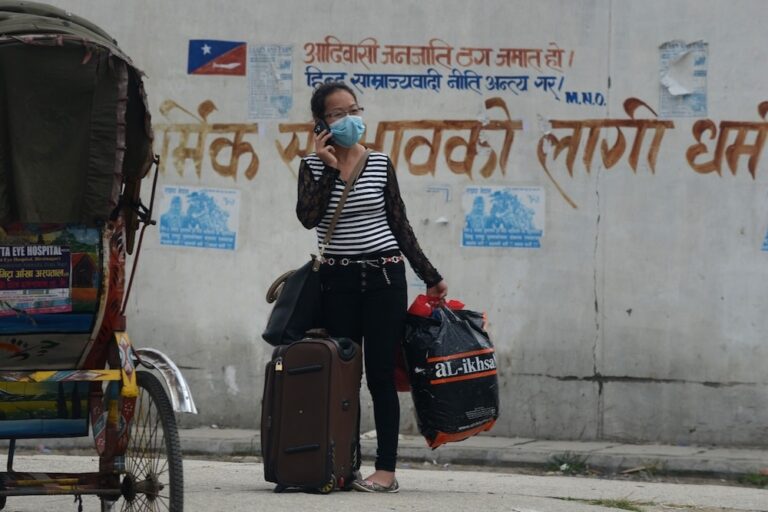(CEHURDES/RSF/IFEX) – While welcoming the release of at least nine journalists in March 2003 alone, RSF and CEHURDES have called on both the government and Maoist rebel leaders to release all 12 journalists who are still being held in Nepal. “The negotiations have opened the way for the release of political prisoners, including journalists, and […]
(CEHURDES/RSF/IFEX) – While welcoming the release of at least nine journalists in March 2003 alone, RSF and CEHURDES have called on both the government and Maoist rebel leaders to release all 12 journalists who are still being held in Nepal.
“The negotiations have opened the way for the release of political prisoners, including journalists, and an increase in press freedom in Nepal. We now urge both parties to respect their commitments and put an end to what has been a terrible period for freedom of expression,” the two organisations said in a joint letter sent to both Prime Minister Lokendra Bahadur Chand and Birendra Jhapali, who leads the Communist Party of Nepal (Maoists) negotiating team.
The authorities are still holding 11 journalists, most of whom work for pro-Maoist publications. They include Komal Nath Baral, editor of the weekly “Swaviman”, who has been held for more than 15 months in Kaski prison, and Muma Ram Khanal, editor of the pro-Maoist daily “Dishabodh”, who was tortured several times and who is being held by the army. The other detainees are Janardhan Biyog, Arjun Thapaliya, Bharat Sigdel, Dinesh Shrestha, Anjan Kumar Himali, Niva Shah, Sanga Tamrakar and Kumar Pandit. Although never acknowledged by the authorities, another journalist, Krishna Sen, died in detention (see IFEX alerts of 22 and 16 October, 27 and 8 August, 12 and 2 July, 26 June and 22 May 2002). Sen was editor of a pro-Maoist publication. He was arrested by the authorities on 20 May 2002.
The Maoists, for their part, are still holding Radio Nepal reporter Dhana Bahadur Rokka Magar, despite assurances by some Maoist leaders that he would be released. He has been held since August 2002 in the western region of Surket.
On 13 March, the government and Maoists agreed to release all prisoners of war and political detainees. As part of their negotiations, each side also undertook not to kidnap or arrest the other side’s supporters.
The government has released more than 10 journalists as a result of this agreement. They include Maheswar Dahal and Ram Karki (also known as Parth Chetri), both journalists with the New Delhi-based pro-Maoist publication “Nepali Aawaj”. They were released on 21 March following a Supreme Court ruling in their favour (see alerts of 25 March 2003 and 15 July 2002). Shiva Tiwari, editor of the pro-Maoist publication “Janadisha”, was released from Kathmandu prison on 24 March (see alert of 25 March 2003). He told CEHURDES that he was tortured during the first two months of his detention.
The pro-Maoist weekly “Janadesh” was able to begin publishing again on 25 March. All pro-Maoist publications were banned in November 2001 after a state of emergency was declared. Om Sharma, who was imprisoned from November 2001 to February 2003, has reassumed his position as editor of “Janadesh” (see alerts of 7 February 2003, 25 January 2002, 28 and 20 December, 30 and 27 November 2001).


